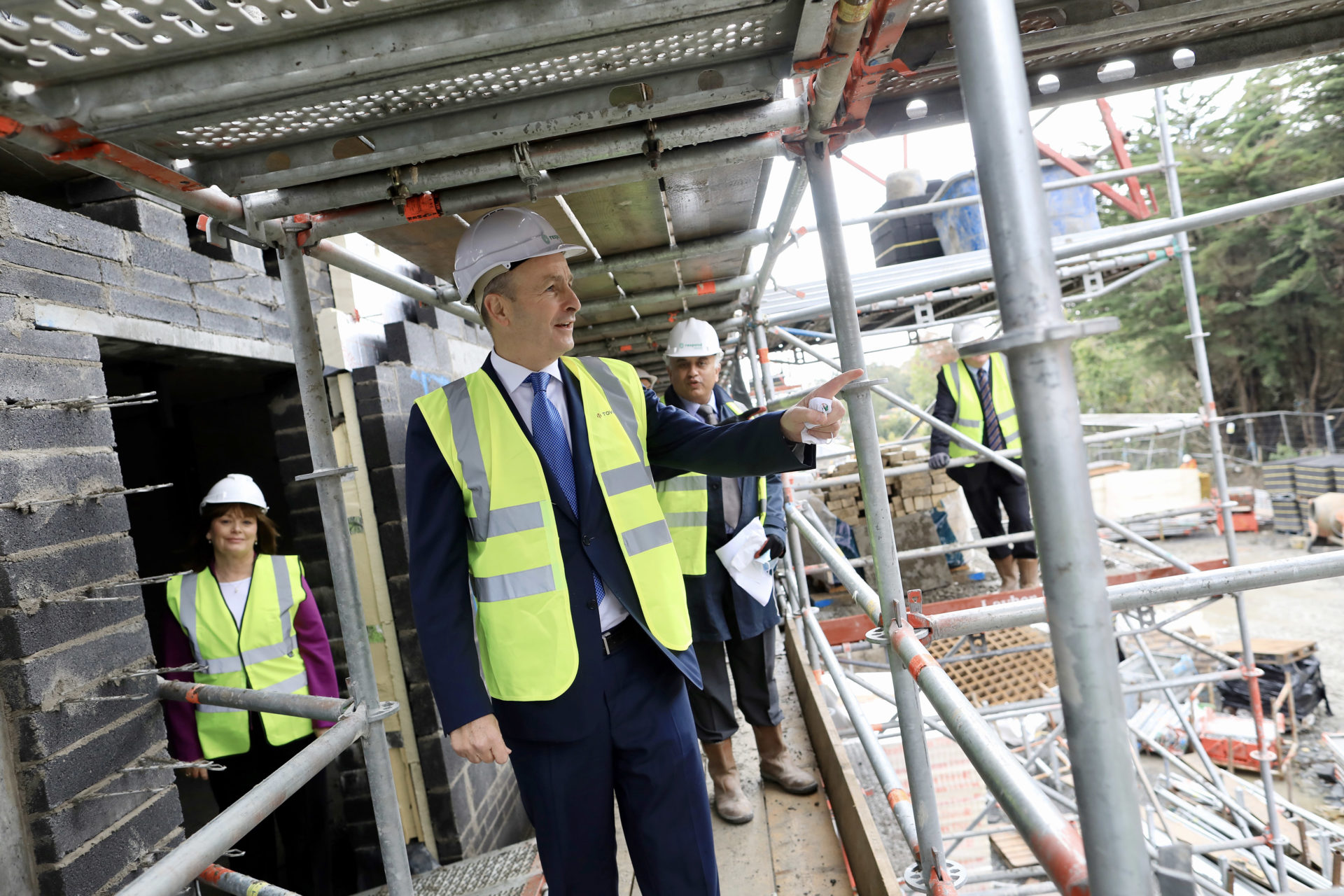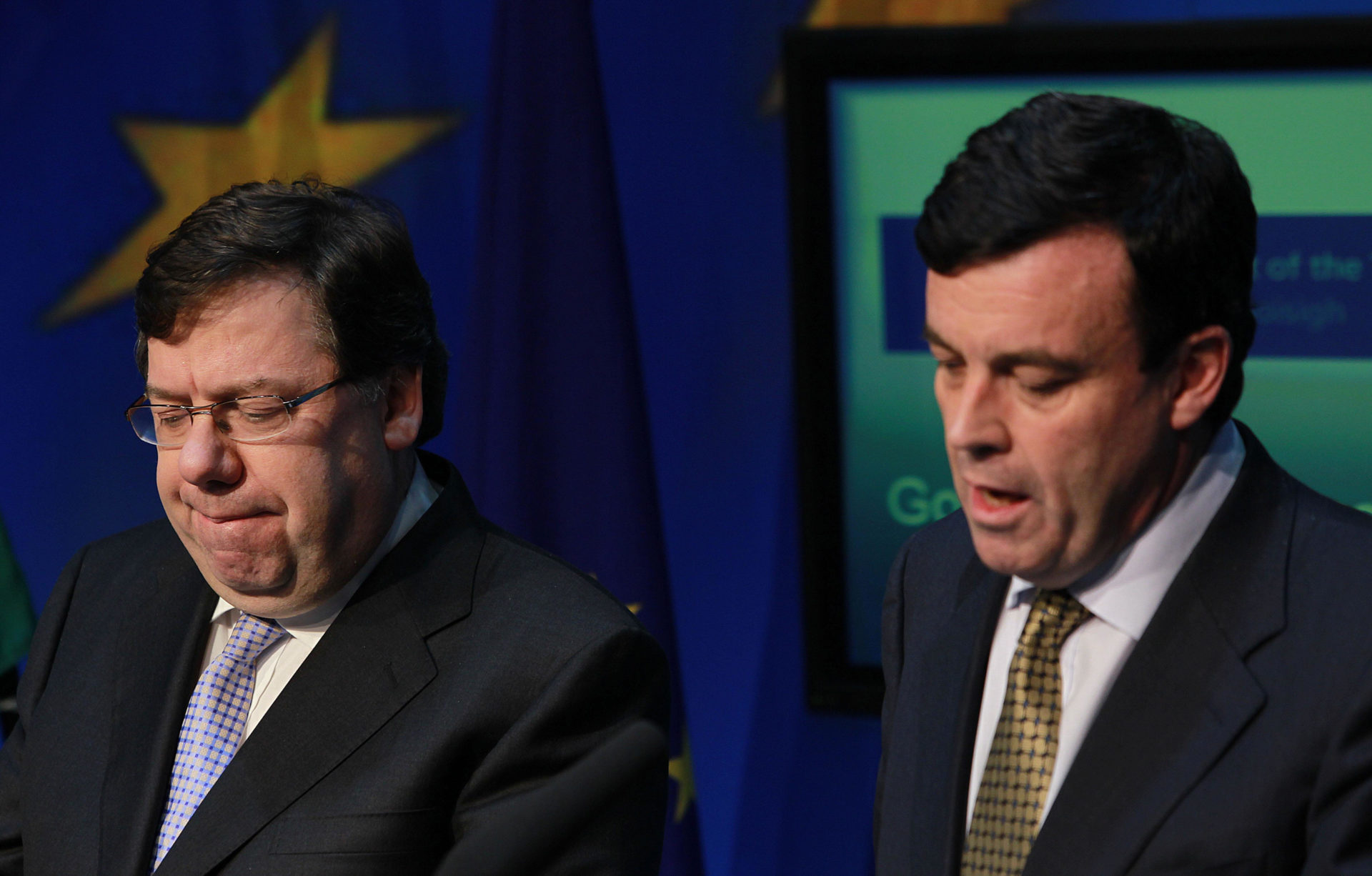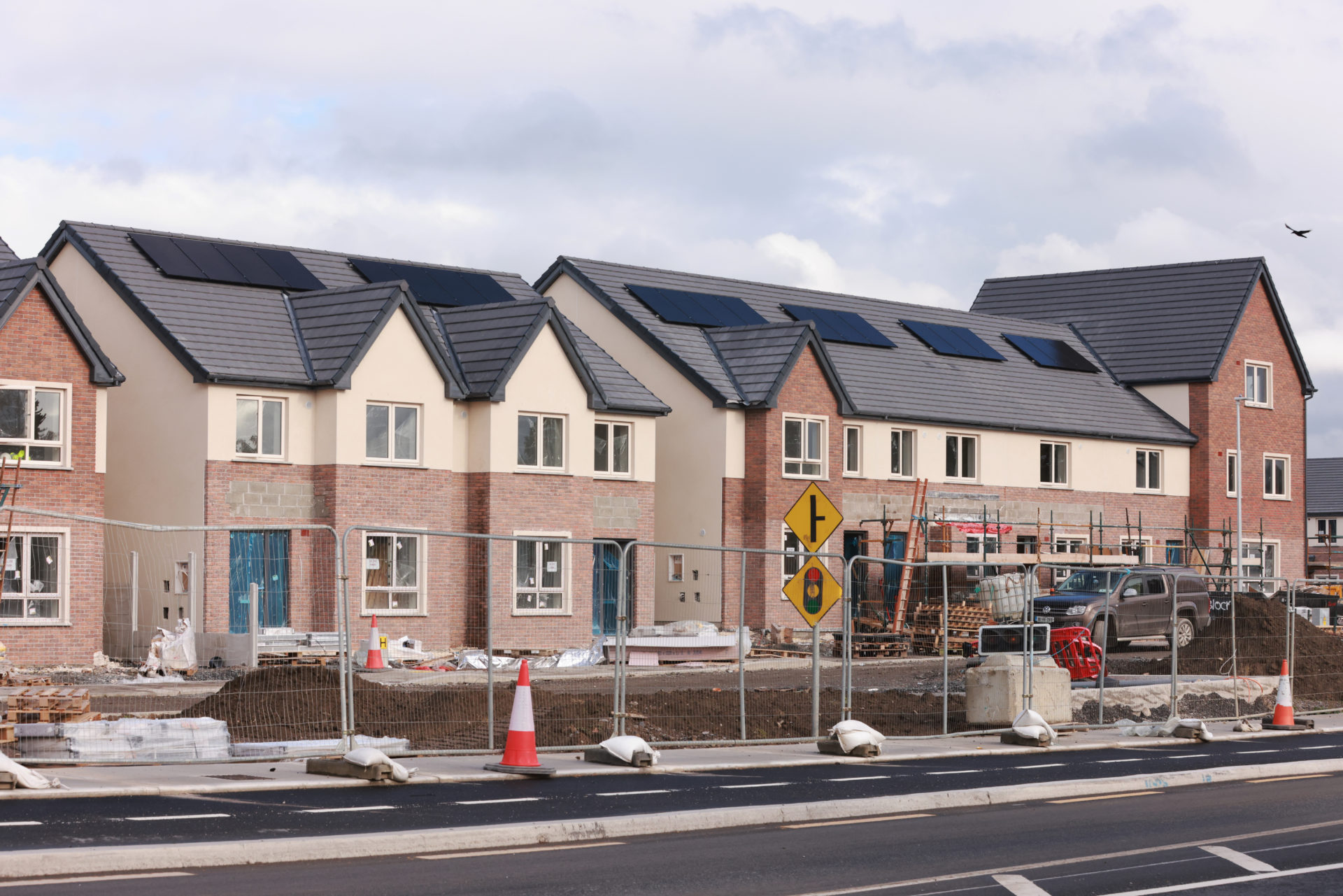Are millennials destined to be poorer than their parents?
The generation born between the 1980s and mid 1990s have had a certain amount of economic misfortune.
Many graduated during the financial crisis, have endured a pandemic and then the eyewatering inflation triggered by the energy crisis.
All while grappling with a housing crisis that shows no sign of abating.
On Newstalk Daily, Trinity College economist Barra Roantree explained why for many people in their 30s and 40s, things might not perk up.
“There is the prospect where for the first time generations are no better off than the previous one,” he said.
“That’s not a normal circumstance; normally, you have countries growing and you have people better off than their parents and their parents are better off than their parents.
“It’s not entirely clear that that is going to continue on and a core bit of that is housing.”
 Taoiseach Micheál Martin visits a building site. Picture by: Julien Behal Photograph / RollingNews.ie.
Taoiseach Micheál Martin visits a building site. Picture by: Julien Behal Photograph / RollingNews.ie.While housing is at the heart of the problem, the unusually large number of economic shocks since the new millennium have not helped matters.
“After the financial crisis of the late 2000s, coming out of that, people born in the 1980s in particular, their earnings were suppressed for many years,” Dr Roantree continued.
“They actually did have lower incomes at the same age than people born 10 years earlier.
“That was really striking; it’s starting to maybe fade away but we did have a situation for about a decade where there was a generation of people who were worse off than people born 10 years earlier.”
 Taoiseach Brian Cowen and Finance Minster Brian Lenihan during a press conference in Government Buildings after the Government confirmed it would seek a bailout loan from the International Monetary Fund. Picture by: Alamy.com.
Taoiseach Brian Cowen and Finance Minster Brian Lenihan during a press conference in Government Buildings after the Government confirmed it would seek a bailout loan from the International Monetary Fund. Picture by: Alamy.com.In Ireland, house prices and rents continue to race upwards at a significantly higher rate than wages.
In 2025, the dire housing crisis almost seems normal - but that wasn’t always the case.
“For people born in the 1960s, about two thirds of them owned their own house by age 30,” Dr Roantree said.
“That’s fallen to a third born in the 1980s; across a couple of generations we saw home ownership rates just plummet at age 30.
“In terms of where they’re heading, it looks like for future generations, home ownership rates are going to be a lot, lot lower.
“Again, think about people who are retired today; 90% of them own their own house and most of them outright.
“If you think about people who are, say, in their 30s today; we did some work looking at this a few years ago and it’s looking like it’ll get to be about 50%."
 New housing in Kildare. Picture by: Eamonn Farrell/RollingNews.ie
New housing in Kildare. Picture by: Eamonn Farrell/RollingNews.ieDr Roantree continued that even the most optimistic scenarios forecast that homeownership will be a “lot lower” among retired millennials.
Still, there is a small cohort of millennials who managed to get lucky and buy a property when house prices were at rock bottom.
“They were probably at their lowest in 2011, 2012,” Dr Roantree said.
“So, anyone who was able to get a mortgage then, who was in a secure job and had earnings, they probably got a steal.
“We know since then, house prices have increased by 100%.”
Experts have warned that the rising number of elderly renters will trigger a significant increase in pensioner poverty, as those impacted struggle to pay for housing costs on a fixed income.
Main image: Adult parents and their children. Picture by: Alamy.com.









